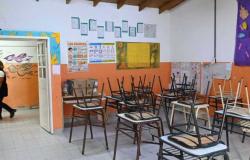Legislator Seleme (UCR) gave the Brazilian policy of 1973 as an example.
During the last few days, the news was not the best in economic matters for the people of Tucumán. Added to the general crisis that the country is going through were cuts in the gas supply that affected transportation and industry in the province. However, the future presents numerous alternatives with which Tucumán could achieve independence in productive and energy matters.
“Strengthening the ethanol industry is, without a doubt, the best way out of the current crisis. But it requires political will to generate incentive measures that allow the growth of this sector,” the legislator told LA GACETA Rural. Jose Seleme (Radical Civic Union).
He added that if the sugar cane harvest lasted at least seven months in our province, the rates of poverty, unemployment and marginalization would decrease drastically. “We must develop policies that encourage the use of this renewable energy source,” he said.
“The harvest must move 100% with ethanol, public transport must be gradually converted to ethanol, sugar mills should have their service stations to supply all types of vehicles. This could even generate a new business unit that would generate new sources of work,” she pointed out.
He indicated that sugarcane growers must also participate in the business. “By reinstalling the alcohol factory, since they are the suppliers of the essential raw material for the production of this biofuel,” he said.
Currently, there is new technology for the production of ethanol, E2G (second generation ethanol) reuses sugarcane bagasse, first generation ethanol residues (E1G) and crop residues, subjecting it to treatment, fermentation and distillation. Compared to gasoline, E2G has an 80% lower carbon footprint. Compared to E1G, the carbon dioxide reduction is 30%. In this way, productivity can increase up to 50% without the need to increase the sugarcane plantation area.
In Brazil, after the oil crisis of 1973, the Government created the Proalcohol program. At that time, the State transferred technology, provided subsidies and provided the ideal framework for investments to be made, transforming the automotive industry installed in that country. Five years later, the Fiat 147 became the first car to run 100% on alcohol.
Then, the Flex system emerged, which allows vehicles to run alternatively on gasoline or ethanol. The growth was so abrupt that in 2022, 80% of the vehicles patented in the neighboring country had this type of advancement.
“Today, the gap with Brazil is even deeper. The trucks that drive the harvests and transport sugar cane to the mills use ethanol as fuel. It is even planned to open 20 new plants to produce E2G. It is our possibility to stand out in biofuel. What are we waiting for? Transforming it into employment, income and the fight against inequalities should be the main motivation for the province. This is the way, there is no turning back. We must produce ethanol, for Tucumán, for Argentina and for the world,” concluded Seleme.






